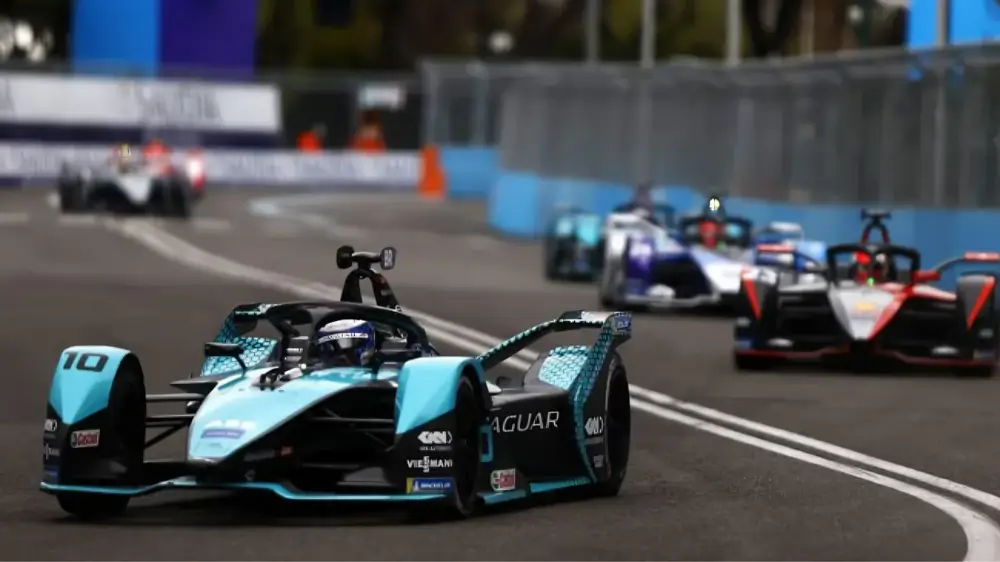Formula E: Sparking Creativity in the Electric Vehicle Race for Legacy Automakers
In the ever-changing world of electric cars (EVs), established automakers are stepping up their efforts to overtake market leaders like Tesla. One prominent area they are investigating is Formula E, where electric racing teams act as hubs for innovation. This blog explores how mainstream manufacturers are using Formula E to drive mass-production EV innovations in their quest for increased pricing, range, and efficiency.
The Challenge of Formula E:
Although Formula E has not been as successful as Formula One in terms of popularity, it nevertheless acts as a test bed for important electric vehicle technology. The lack of visceral noise and continuous power of traditional combustion engines makes electric cars less appealing to motorsports enthusiasts. Nonetheless, Formula E competitors argue that the competition’s emphasis on power conservation and optimization offers a distinct opportunity for improving motors, inverters, and software.
Increasing Innovation to Drive Efficiency:
Jaguar Land Rover (JLR), a division of Tata Motors, has set aside an astounding £15 billion ($19 billion) to hasten its entry into the electric vehicle (EV) market. JLR is using the silicon carbide inverter technology that was first created for Electric Vehicle Race to improve the efficiency of its premium EVs that are being produced in the next generation. The Jaguar TCS Racing team’s principal, James Barclay, emphasizes the expertise gained from controlling battery temperatures. Through over-the-air updates, the range of Jaguar I-Pace EVs has already been increased by 20 kilometers.
Nissan’s Role in the EV Competition:
Nissan understands the significance of Formula E in guiding its EV strategy, and by 2026 it intends to have 19 all electric cars on the road. Nissan Formula E team principal Tommaso Volpe says the software of the racing car is inspired by the Nissan Leaf. With an emphasis on cost in this technological shift, the goal is to develop more effective motors, inverters, and small battery packs for broad integration across Nissan’s mass-market EV lineup.
Porsche’s Twofold Strategy:
Porsche is carefully redistributing expertise from its Formula E program to road cars in addition to employing Formula E technology for the development of luxury electric vehicles. Porsche director Florian Modlinger emphasizes how two of the industry’s best engineers have contributed their knowledge to road models over the past year, demonstrating a comprehensive approach to EV innovation.
Different Courses: Ford, Mercedes, and BMW:
Not every automaker has opted to follow the Formula E route. BMW said it has run out of options for technology transfer when it left the race in 2021. Mercedes left Formula E but used their Formula One squad to focus on designing efficient electric vehicles. Ford plans to compete in Formula One Racing again in 2026, using the series as a platform for EV advancement.
Formula E as a Laboratory for Technology:
Alejandro Agag, the founder of the race, highlights that manufacturers who are dedicated to the sport see it as an essential testing ground for new technology. The emphasis on quick charging as a major area of advancement draws attention to the possible influence on consumer EVs in the near future.
Stellantis: EV Development Acceleration Across Brands:
Stellantis, a significant player in the drive for electric vehicles, especially reasonably priced ones, is profiting from research conducted by its high-end DS brand Formula E squad. The director of DS Performance, Eugenio Franzetti, emphasizes how quickly technology is being transferred in the context of the electric revolution. By utilizing the knowledge, Stellantis hopes to expedite EV development across its varied portfolio of 13 businesses.
Formula E emerges as a catalyst for innovation in the dynamic field of electric vehicles (EVs), allowing established automakers to catch up to industry leaders. The future of mass-production electric vehicles is being shaped by the transfer of technology, talent, and lessons gained from the competitive world of Electric Vehicle Raceing. Formula E acts as a testing ground for innovations that will unavoidably change the way we travel and define the future of transportation as automakers negotiate the challenging landscape of electric mobility.
You may also Read our Finance, World News, Local News, Health, Food, and Education articles.
খাসটাইমস বাংলা সম্পর্কে আরও বিস্তারিত ও নতুন খবর জানতে ক্লিক করুন। সব ধরনের ব্রেকিং, আপডেট এবং বিশ্লেষণ সবার প্রথম বাংলায় পড়তে ক্লিক করুন।
